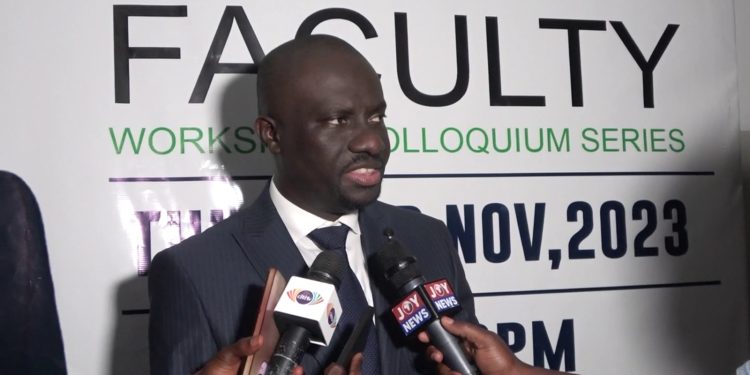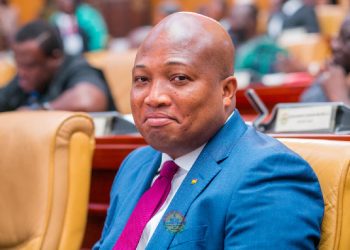A lecturer with the Ghana Institute of Management and Public Administration (GIMPA) Law Faculty, George Baffour Asare-Afriyie, is advocating for the establishment of a supranational government for the West African sub-region.
The supranational government he says will be in charge of enforcing the Economic Community of West African States (ECOWAS) protocols, treaties amongst others
Speaking to the media on the sidelines of a presentation of a paper themed “Giving ECOWAS the teeth: A case of a supranational government for the west African sub-region”, George Baffour Asare-Afriyie bemoaned the current state of ECOWAS particularly the lack of political will to implement decisions.
“One of the main challenges that ECOWAS encounters is the lack of political will among its member states to implement its decisions. This has been evident in the lack of compliance by member states to adhere to the principles of the ECOWAS Protocol on Democracy and Good Governance, which requires that they uphold democratic principles and respect human rights. Furthermore, member states have been reluctant to cede sovereignty to ECOWAS, thus limiting the organization’s ability to act decisively in matters of regional importance.”
Mr. Asare-Afriyie proposed that a central decision-making body be established and vested with the absolute power to make decisions for the ECOWAS to prevent the opposition that often plagues the sub-region.
“To combat these challenges, it is proposed that one must look to the establishment of a supranational government for the West African sub-region. This would involve the creation of a central authority with the power to make and enforce decisions on behalf of the member states. The supranational government would be responsible for implementing regional policies and regulations and ensuring compliance with
ECOWAS decisions.”
“One of the key benefits of a supranational government for the West African sub-region would be the ability to enforce regional policies and regulations. This would help to address the problem of non-compliance by member states, as the supranational government would have the power to impose sanctions on those who fail to comply with its decisions.
“In addition, establishing a supranational government would help promote regional integration and cooperation, as member states would be required to work together to achieve common goals,” Mr. Asare-Afriyie further emphasized.















